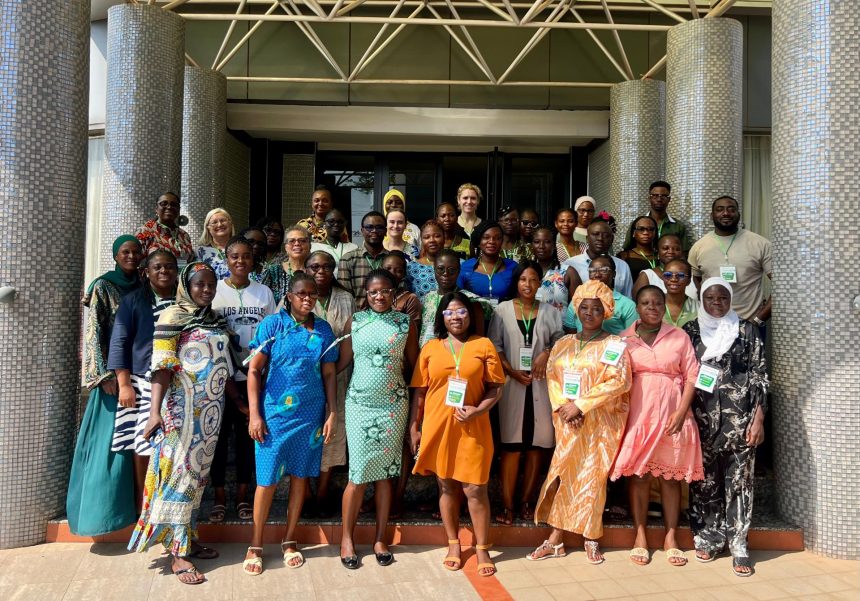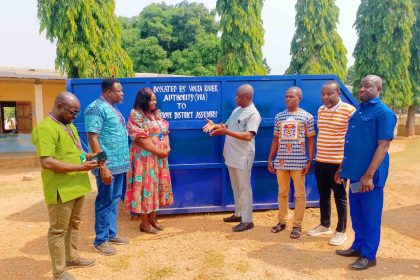A total of 28 healthcare providers drawn from eight health facilities across five regions have undergone a week-long intensive training in Emergency Obstetric and Newborn Care (EmONC).
The training held in Tamale in the Northern Region was to enhance their capacity to deliver quality, gender-responsive, and youth-friendly reproductive health services.
It was organised by Oxfam in Ghana under its Power to Choose (P2C) Project, a seven-year initiative funded by Global Affairs Canada to increase access to reproductive health information and services for adolescent girls and young women aged 10–24 by 2028.
Participants were trained in five key signal functions of EmONC including Assisted Vaginal Delivery, Post-Partum Haemorrhage, Management of Hypertensive Disorders in Pregnancy, Sepsis Management, and Neonatal Resuscitation.
The sessions also introduced healthcare workers to the Human Rights-Based Approach to healthcare delivery, with emphasis on providing judgment-free and inclusive services to adolescent girls and young women.
The training also witnessed the participation of other health professionals, and facilitators from the Society of Obstetricians and Gynaecologists of Ghana (SOGOG), Society of Obstetricians and Gynaecologists of Canada (SOGC), Paediatrics Society of Ghana, and staff of Oxfam in Ghana.
The training formed part of the P2C project’s broader effort to strengthen the capacity of healthcare professionals to provide professional, gender-sensitive, and accountable Sexual and Reproductive Health (SRH) services in eight project-supported facilities across the Bono East, Central, Greater Accra, Northeast, and Northern Regions.
Madam Fauziatu Abdul-Rahman, the Country Coordinator of the P2C Project in Ghana, the project sought to increase the equitable use of SRH services by young women and adolescent girls, especially those living in vulnerable conditions.
She said the project had already trained 80 healthcare professionals between January 2024 and May 2025 through a Training of Trainers and two EmONC sessions resulting in significant improvements in service delivery, respectful maternity care, and knowledge retention among beneficiaries.
“Through these continuous capacity strengthening interventions, we are improving the attitudes, knowledge and skills of health professionals to ensure that young women and adolescent girls receive quality, confidential and respectful care,” she said.
Dr Naa Baake Armah, a Senior Specialist at the Korle-Bu Teaching Hospital and a training officer with SOGOG, emphasised the need for enhanced preparedness among health facilities to manage life-threatening obstetric and neonatal complications.
She said, “We hope to make an impact at the facility levels by increasing awareness and preparedness in managing the conditions that kill our women and newborns.”
She expressed optimism that participants would transfer the knowledge and skills acquired to colleagues in their respective facilities, adding that collective effort was critical to reducing maternal and neonatal morbidity and mortality in the country.
Dr Armah appealed to the Ghana Health Service to adequately resource all levels of care including Community-based Health Planning Services (CHPS) compounds, health centres, district, and regional hospitals, to ensure the timely management of emergencies, especially those affecting pregnant women.
Madam Bridgette Agbosege, a Senior Midwife with the Ghana Health Service and a facilitator at the training, expressed satisfaction with the progress made so far since she was trained as a trainer in January 2024.
She said “Since then, I have become a facilitator helping to train other health professionals. These engagements are improving the quality of care across project facilities.”
Some participants shared their experiences with the Ghana News Agency, describing the training as timely and practical.
Madam Joyce Ramatu Karimu, a midwife at the Ashaiman Municipal Hospital, said the hands-on components of the training had significantly boosted her confidence.
“This particular training has afforded me the opportunity to receive hands-on training because it entails a lot of practicals, and this will go a long way to influence my contribution to overall healthcare within my facility,” she said.
The training aligned with Component Two of the P2C Project, which focuses on improving healthcare delivery for young women and adolescent girls.






